In the context of general mobilization in Ukraine, the state faces a difficult dilemma: how to ensure national security while preventing the collapse of higher education and science? This question is addressed by researchers from the Research Institute of Maritime and Space Law — Andriy Ivanyshchuk, Mykhailo Odukha, and Artur Zamryha — in their joint scientific publication, where they thoroughly analyze the legal aspects of the right to deferment for scientists and educators.
What is “deferment” and why is it important?
The issue concerns provisions set out in paragraph 2, part 3, Article 23 of the Law of Ukraine “On Mobilization Preparation and Mobilization.” It grants scientific and academic staff exemption from military conscription during mobilization — provided that strict criteria are met: possession of an academic degree, official employment at the primary workplace, a workload of no less than 0.75 FTE, and regular tax and contribution payments by the employer.
However, as the authors emphasize, this provision does not apply automatically. Scientists or educators must take the initiative — submit the required documents to the Territorial Recruitment Center (TRC) and complete the necessary procedure in time.
Not a privilege or duty, but a strategic necessity
The authors stress that preserving intellectual potential is a matter of national security. Rebuilding the country after the war will require not only resources but also a robust scientific and educational foundation. Therefore, the legal regulation of the right to deferment must be not only clear but also flexible, considering the realities of the time.
The role of the Research Institute of Maritime and Space Law
As the director of the Institute, Professor Andriy Ivanyshchuk, notes, it is crucial not only to know the law but also to understand how to apply it. That is why the Institute’s team actively contributes to the development of expert reports and analytical materials that help educational institutions and employees protect and exercise their legal rights effectively.
This article is based on a scientific study published in the peer-reviewed journal “Science and Technology Today”, Issue No. 4(45), 2025, pp. 157–169. Full text available at DOI:
https://doi.org/10.52058/2786-6025-2025-4(45)-157-169
Scientists on the Frontline of Knowledge: Why the Right to Deferment Is Not a Privilege, but a State Necessity
Relevant Publications
-
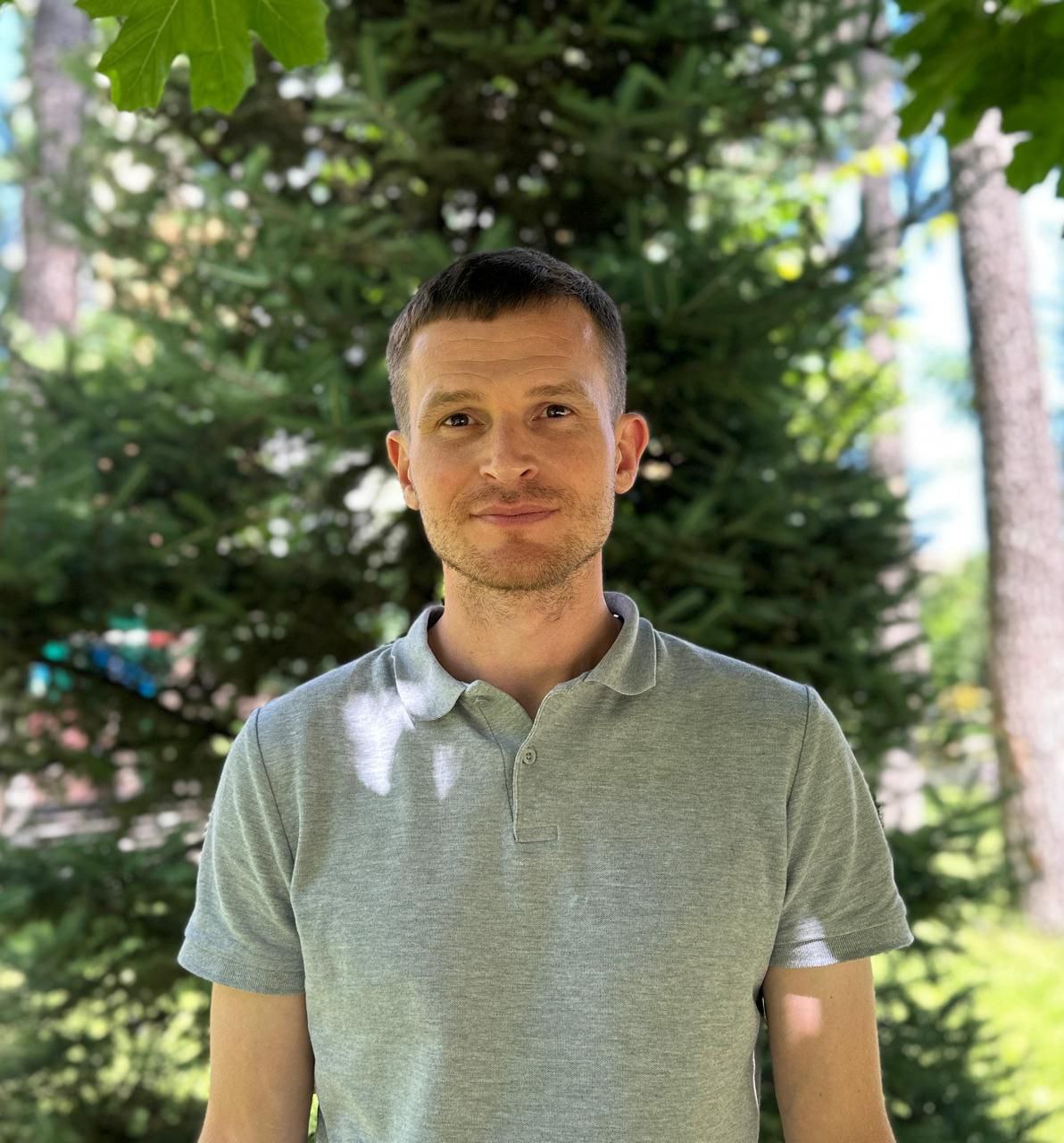 Features of Administering Mobilization Preparedness: Research Institute of Maritime and Space Law Participates in Topical Study17 Jul 2025 Publications and News
Features of Administering Mobilization Preparedness: Research Institute of Maritime and Space Law Participates in Topical Study17 Jul 2025 Publications and News -
 Science, Law, Innovation: Memorandum Signed Between the Institute of Maritime and Space Law and the Kherson Institute of Economics and Law11 Jul 2025 Publications and News
Science, Law, Innovation: Memorandum Signed Between the Institute of Maritime and Space Law and the Kherson Institute of Economics and Law11 Jul 2025 Publications and News -
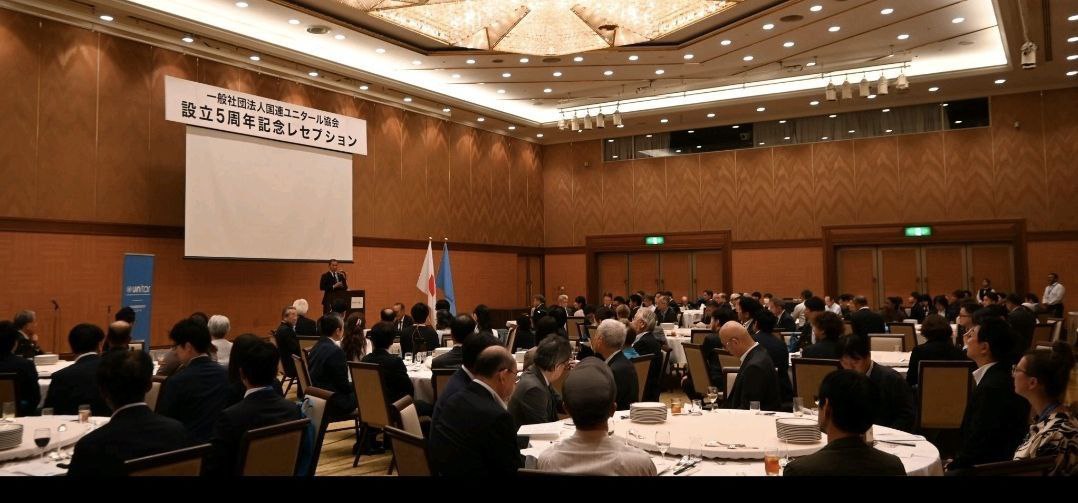 The Public Defense Was a Success: Volodymyr Pryhlad Convincingly Demonstrated the Relevance of Reforms in the Field of Air Transport05 Jul 2025 Publications and News
The Public Defense Was a Success: Volodymyr Pryhlad Convincingly Demonstrated the Relevance of Reforms in the Field of Air Transport05 Jul 2025 Publications and News -
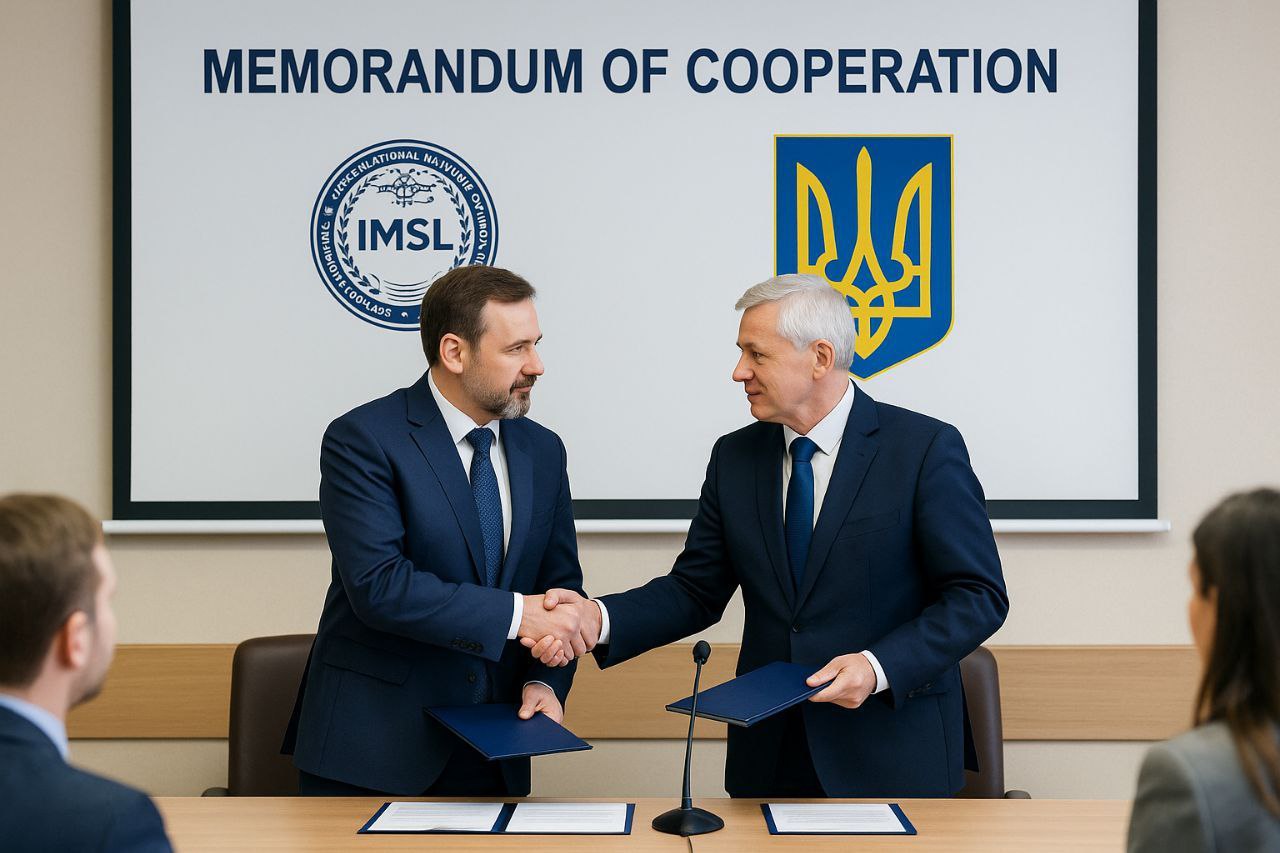 Memorandum of Cooperation with Kherson State Maritime Academy30 Jun 2025 Publications and News
Memorandum of Cooperation with Kherson State Maritime Academy30 Jun 2025 Publications and News -
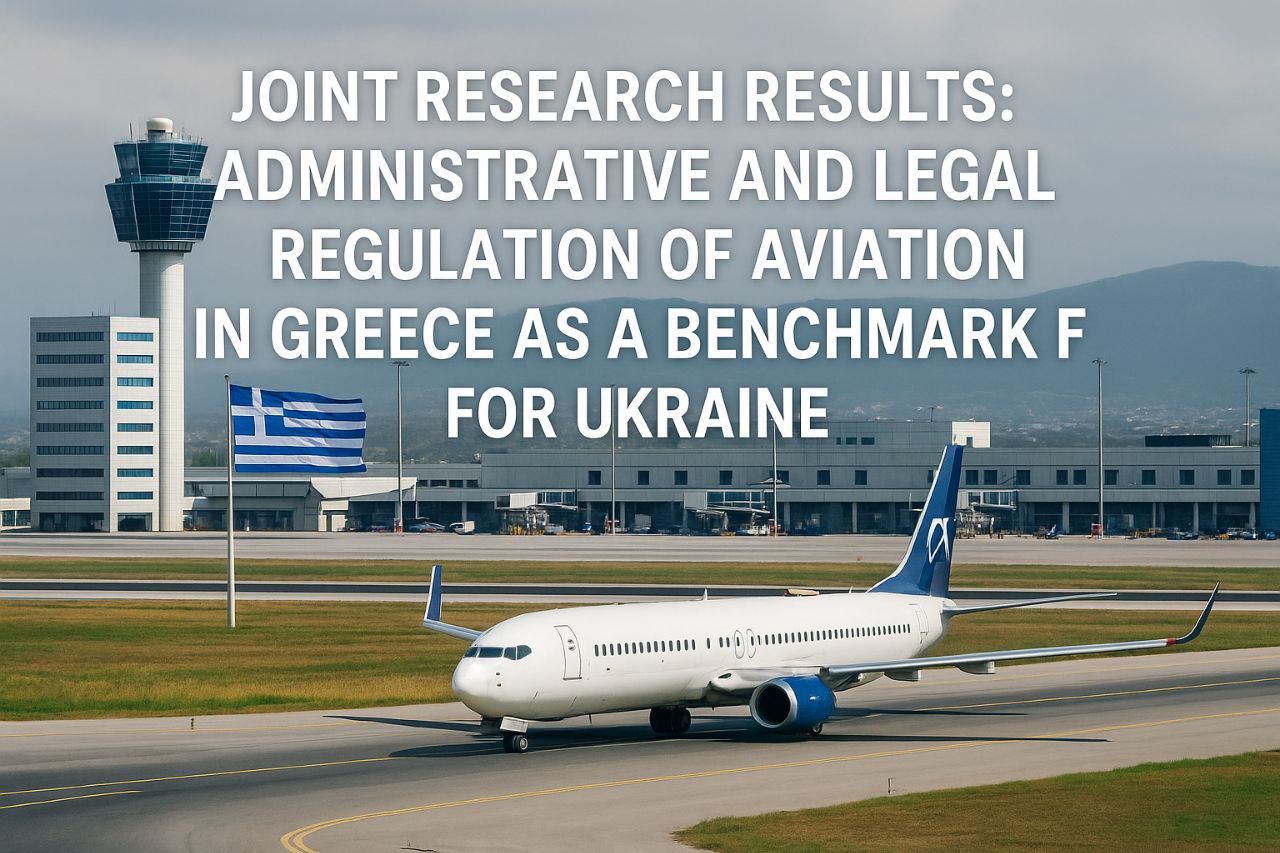 Joint Research Results: Administrative and Legal Regulation of Aviation in Greece as a Benchmark for Ukraine30 May 2025 Publications and News
Joint Research Results: Administrative and Legal Regulation of Aviation in Greece as a Benchmark for Ukraine30 May 2025 Publications and News -
 Public Aviation Governance: Why Ukraine Can Learn from Turkey23 May 2025 Publications and News
Public Aviation Governance: Why Ukraine Can Learn from Turkey23 May 2025 Publications and News -
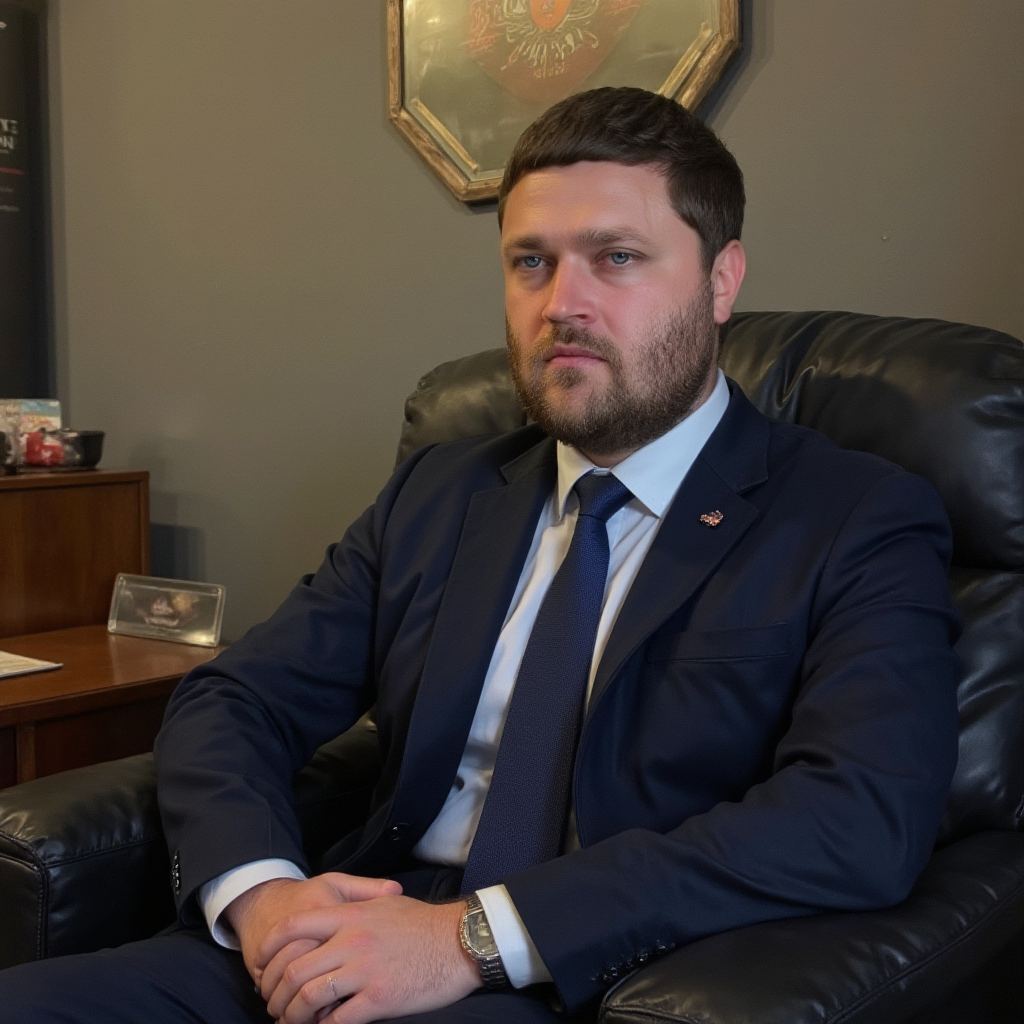 Deputy Director Appointed at the Institute for Maritime and Space Law Artem Pedan21 May 2025 Publications and News
Deputy Director Appointed at the Institute for Maritime and Space Law Artem Pedan21 May 2025 Publications and News -
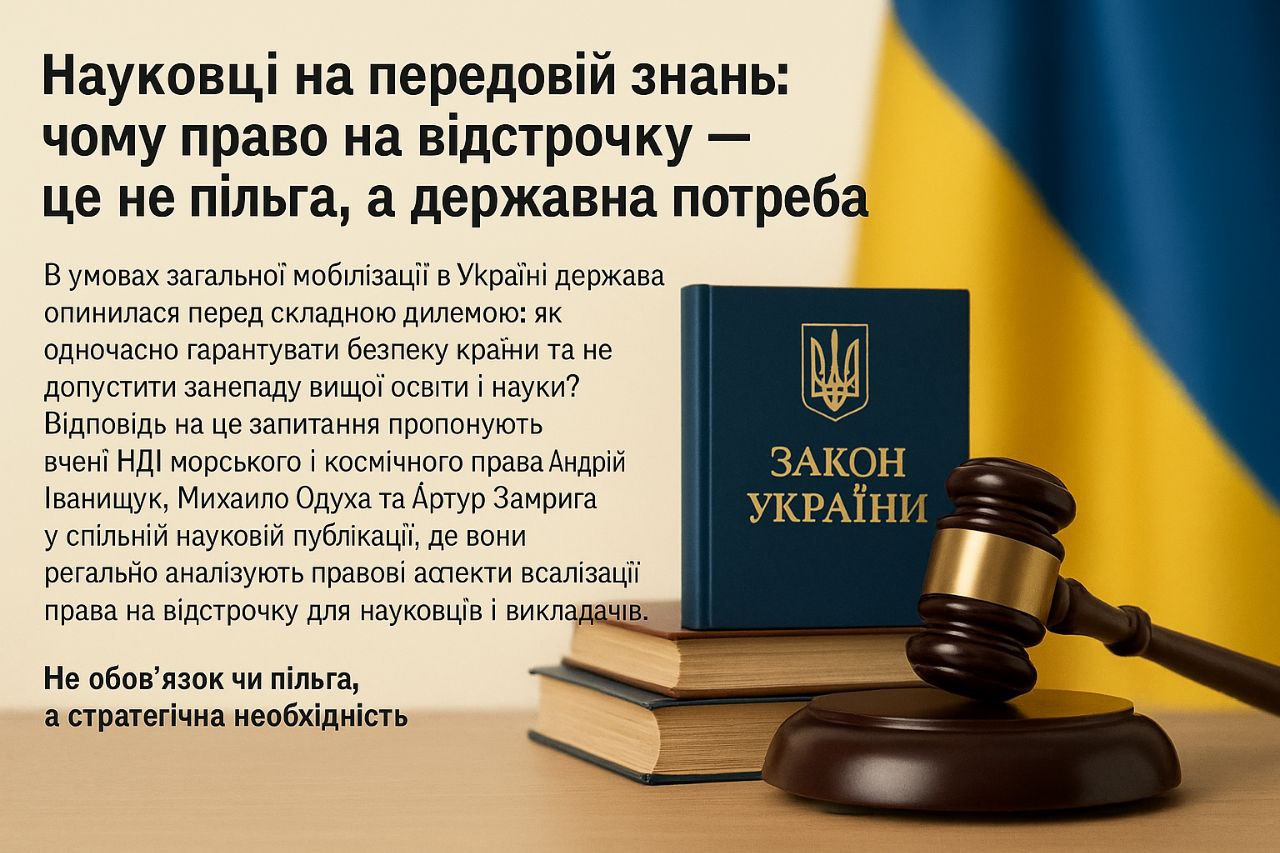 Scientists on the Frontline of Knowledge: Why the Right to Deferment Is Not a Privilege, but a State Necessity19 May 2025 Publications and News
Scientists on the Frontline of Knowledge: Why the Right to Deferment Is Not a Privilege, but a State Necessity19 May 2025 Publications and News -
 Scientific Foundation for Effective Governance: IMSL Integrates Dissertation Vitalii Plavshuda15 May 2025 Publications and News
Scientific Foundation for Effective Governance: IMSL Integrates Dissertation Vitalii Plavshuda15 May 2025 Publications and News -
 The First Meeting of the Academic Council of the Research Institute Took Place02 May 2025 Publications and News
The First Meeting of the Academic Council of the Research Institute Took Place02 May 2025 Publications and News
